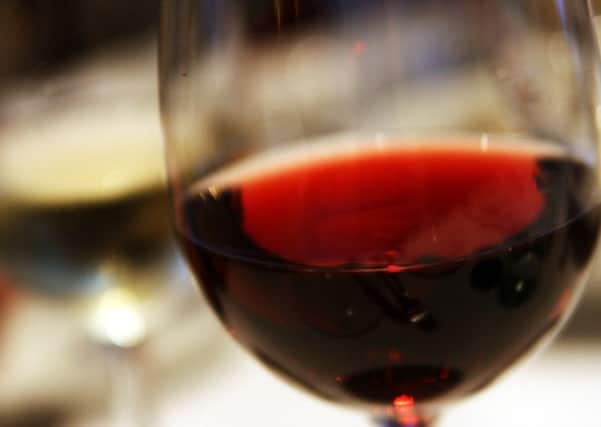9 in 10 Scots unaware of red wine risk


The YouGov results have been released for Cancer Prevention Month (February 1-29).
The findings also revealed that that 70 per cent of Scots are aware of the link between inherited genes and cancer even though it accounts for less than one in ten cases. 44 per cent wrongly thought that stress was directly linked to an increased cancer risk despite evidence discounting this myth.
Advertisement
Hide AdAdvertisement
Hide AdOur research shows that not drinking alcohol is one of the most important things people can do to reduce their cancer risk, alongside not smoking and being a healthy weight. The latest evidence suggests that the claimed benefits of drinking red wine for heart health are less than previously thought and are outweighed by the harmful effect alcohol has on cancer risk.
The results from the survey showed that many people are still not clear on what increases their risk of cancer. For Cancer Prevention Month, World Cancer Research Fund has an online awareness campaign on whether factors such as cling film, stress and red wine increase cancer risk. This information is to help clarify and give the UK public a better understanding of what factors increase their risk, and what they can do to reduce their risk.
World Cancer Research Fund are the cancer prevention experts and were the first organisation to identify that diet, weight and physical activity can affect people’s risk of cancer. In fact, a third of the most common cancer cases could be prevented every year in the UK through improved physical activity, diet and weight.
When comparing England, Scotland and Wales, the poll showed that Welsh adults are by far the least aware that consuming red wine (5% aware) increases the risk of developing cancer. Regionally, people in the East of England and the North West are the least aware of the link between drinking red and the risk of cancer (both 9%). Out of all age groups 18 to 24 year olds are the most aware (27%) while those most at risk of cancer, the over 55s’, are the least aware (6%).
Advertisement
Hide AdAdvertisement
Hide Ad